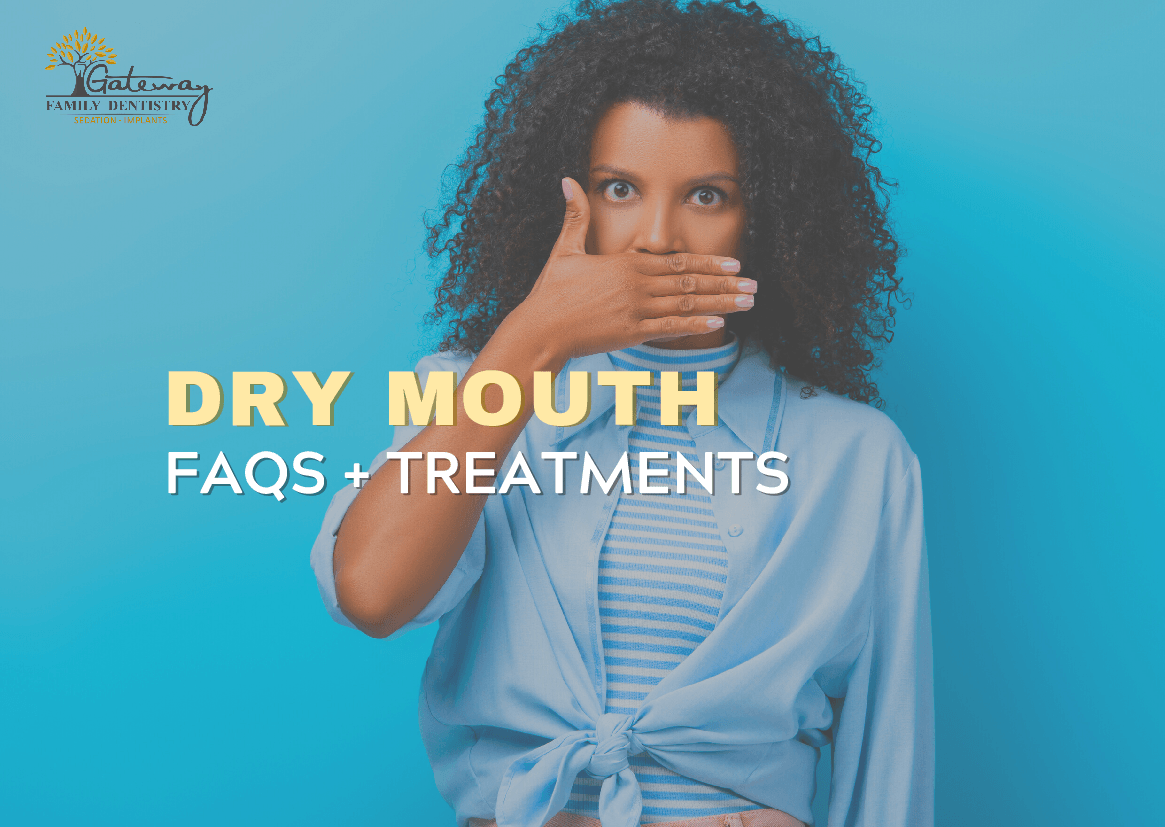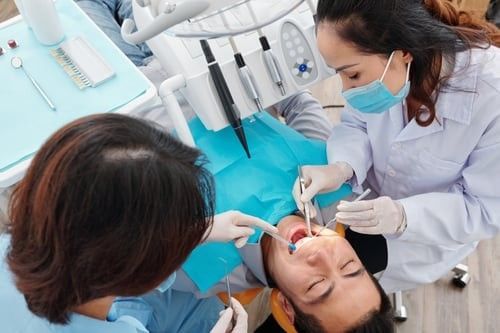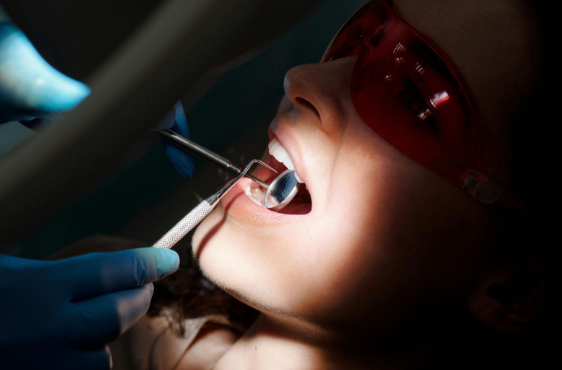Gateway Family Dental Blog

Dry Mouth: Frequently Asked Questions
Dry mouth may seem like a harmless condition, but in truth, it causes a host of unpleasant symptoms and is damaging to your teeth.
Today, we’re answering some frequently asked questions and exploring treatment options for people who suffer from dry mouth.
What is Dry Mouth?
Chronic dry mouth is a condition caused by lack of saliva production in the salivary glands.
This condition is also called
xerostomia.
What Causes Dry Mouth?
Dry mouth is caused by a number of factors:
Medication usage. Certain medications, like antihistamines, antidepressants, antidiarrheal medications, and hypertensive medications, have been linked to dry mouth in patients1.
Cancer treatment. Radiation and chemotherapy treatments have been linked to complaints of dry mouth, as these treatments can change or damage the salivary glands in patients with cancer2.
Autoimmune diseases. Patients with Sjögren's syndrome, HIV, rheumatoid arthritis, systemic lupus erythematosus, scleroderma, mixed connective tissue disease, and polymyositis are at higher risk of developing dry mouth3.
Non-autoimmune conditions. Diabetes, stroke, Alzheimer’s Disease, sarcoidosis, amyloidosis, nerve damage, and thyroid dysfunction are just a few of the medical conditions that have been associated with dry mouth4.
Lifestyle factors. Smoking or chewing tobacco can cause malfunction of the salivary glands. Alcohol consumption can also cause dry mouth.
Mouth breathing. People who breathe with their mouths open are far more likely to develop xerostomia than people who breathe through their noses. Mouth breathing is often caused by nasal airway obstruction, enlarged adenoids or enlarged tonsils. Additionally, many individuals breathe through their mouths while they sleep. This can cause a condition known as sleep apnea,
a potentially serious disorder characterized by breathing that stops and starts throughout sleep.
Does Dry Mouth Cause Bad Breath?
Yes. Saliva plays a vital role in keeping the mouth moist, neutralizing acids that are produced by plaque, and flushing away old food particles and dead cells in the mouth. Without adequate saliva, odor-causing bacteria, plaque and harmful germs can collect on the teeth, tongue and other parts of the mouth.
Dry mouth is associated with halitosis, a condition characterized by chronic bad breath that doesn’t go away and can’t be masked by mints, mouth rinses or chewing gum.
Can Dry Mouth Damage Teeth?
Yes. Individuals who suffer from dry mouth are at a higher risk of developing dental caries (tooth decay) and gum disease than those with adequate saliva levels.
Saliva is the mouth’s natural defense against tooth decay and gum disease. Saliva helps keep the mouth clean by washing away food particles and harmful acids that are produced by plaque. It also contains minerals like calcium and phosphate that help fight early tooth decay.
Dry mouth also increases a person’s risk of gum disease. When there isn’t enough saliva to control the growth of harmful bacteria in the mouth, this bacteria can settle under the gum line, creating inflammation and even infection.
Symptoms of Dry Mouth
The main symptoms of dry mouth include:
- A dry or sticky feeling in the mouth
- Thick or stringy saliva
- Difficulty chewing, swallowing or speaking
- Feeling hoarse or having a scratchy throat
- Bad breath
Additionally, the lips may stick together or stick to the teeth and the tongue may feel rough.
Treatment for Dry Mouth
The best way to find an effective treatment for dry mouth is to find out what is causing your symptoms. Visit your dentist or doctor and discuss your symptoms, as well as any changes in your health, new medications or stress levels.
Temporary bouts of dry mouth can be treated by drinking plenty of water, chewing sugar free gum, and using mouth rinses designed to hydrate the mouth.
Your dentist may also recommend over-the-counter artificial saliva products. These can take the form of an oral spray or mouth gel.
You can also eliminate certain lifestyle factors that increase your risk of dry mouth. These changes can include quitting smoking, drinking less, and limiting your intake of caffeine.
If you suffer from chronic dry mouth, it is vital that you take extra precautions in caring for your teeth and gums.
Schedule an appointment with a dentist for a
comprehensive oral exam and dental cleaning, and discuss effective options for treating your dry mouth symptoms.
If you’re searching for a reliable, experienced dental office in Murfreesboro, Gateway Family Dentistry is here for you.
Contact us today to schedule your appointment.
Sources:
- "Xerostomia - StatPearls - NCBI Bookshelf." 7 Jun. 2020, https://www.ncbi.nlm.nih.gov/books/NBK545287/.
- "Dry Mouth or Xerostomia | Cancer.Net." https://www.cancer.net/coping-with-cancer/physical-emotional-and-social-effects-cancer/managing-physical-side-effects/dry-mouth-or-xerostomia.
- "Hyposalivation in autoimmune diseases - NCBI - NIH." 29 Dec. 2012, https://www.ncbi.nlm.nih.gov/pmc/articles/PMC3832768/.
- "Xerostomia – The Oral Cancer Foundation." https://oralcancerfoundation.org/complications/xerostomia/.




